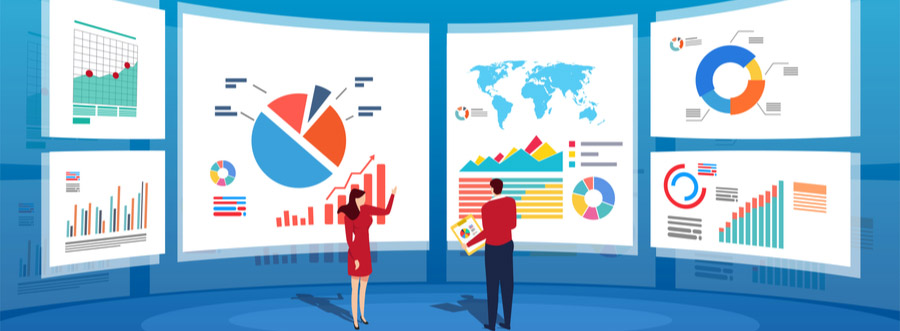Data is essential to informed decision-making. This is a universal truth, but let’s focus on how it applies to IT teams in higher education – particularly around the procurement and management of software and other digital resources licensed by colleges and universities.
Licensing software in higher education is staggeringly complex. Institutions must manage a plethora of agreements with various vendors and ensure compliance with the terms and conditions associated with each. They have to equip thousands of students with the software they need and prevent them from accessing software for which they aren’t eligible. This is challenging even under ideal circumstances. When done with limited data and visibility, the consequences can be quite costly.
Here are three pieces of data academic IT teams need to effectively manage digital licenses on behalf of their institutions.
Software Adoption Rates
First and foremost, IT must be able to accurately assess demand for each piece of software licensed by their institution. To this end, they need visibility into the rate at which software is being adopted and used across all departments.
Without data on adoption rates, institutions are left flying blind when it comes to procuring licenses. All too often, this leads to overspending and shelfware – excess software licenses that go unused, which can cost schools millions of dollars per year. To avoid these costs, institutions need to know how many licenses for each digital product are used each year and let that insight inform procurement.
Unfortunately, many schools lack this data. A 2020 survey by Kivuto and University Business found that fewer than a quarter of academic IT leaders in the US have adequate visibility into software adoption rates. Correcting this should be a top priority for these institutions. Because until they have a clear sense of how much software is being used, they’ll continue to throw money away on excess licenses.
Terms and Conditions
Academic institutions are responsible for ensuring compliance with the various terms and conditions associated with all software they license. In the event of a compliance audit, they may be required to demonstrate that these terms are being adhered to.
To mitigate the risks of noncompliance and prepare for potential audits, institutions need to know that the terms and conditions for each digital product are being communicated to and accepted by end users. They must also know, and be able to demonstrate, that software is only being accessed by eligible users as defined in the terms of their licensing agreements.
Having this data won’t necessarily guarantee compliance with all terms and conditions. However, knowing that end users are at least aware of and have agreed to those terms – and being able to produce documentation confirming this in the event of an audit – will lessen risk to institutions by helping to foster awareness and compliance.
Financial Settlements
To defray licensing costs or generate revenue, many schools charge departments or end users for access to software licensed on their behalf. This can be done via direct charges or interdepartmental billing. However it’s accomplished, institutions that recover costs in this fashion need to be able to track payment and settlement information.
The value of this data should be self-evident. Without visibility into payments and settlements, it’s impossible to assess the success of any cost-recovery initiative. This is on top of the fact that it’s simply a universal best practice to track expenses and revenue — even for income tax-exempt colleges and universities.
Fortunately, most institutions that recover licensing costs have a means in place to track this information. Unfortunately, this means is often manual, involving complex spreadsheets that are time-consuming to maintain and highly prone to human error. Digitizing and automating this process so reports can be generated on demand and with ease should be a priority for academic institutions that haven’t yet done so.
Get the Insights You Need
Kivuto Cloud’s on-demand reports provide all the data necessary to manage licenses more effectively.











No Comments